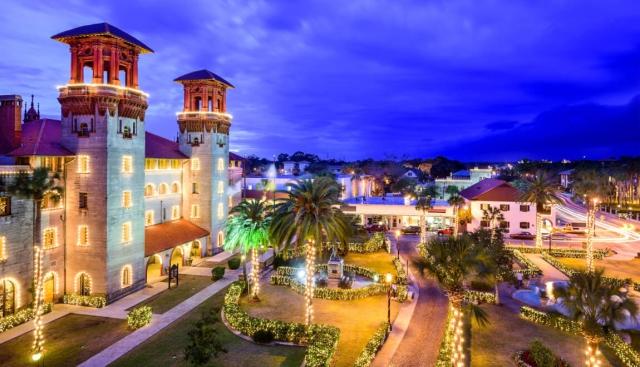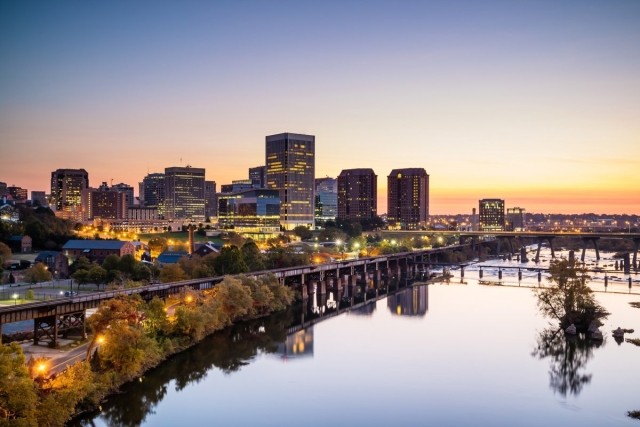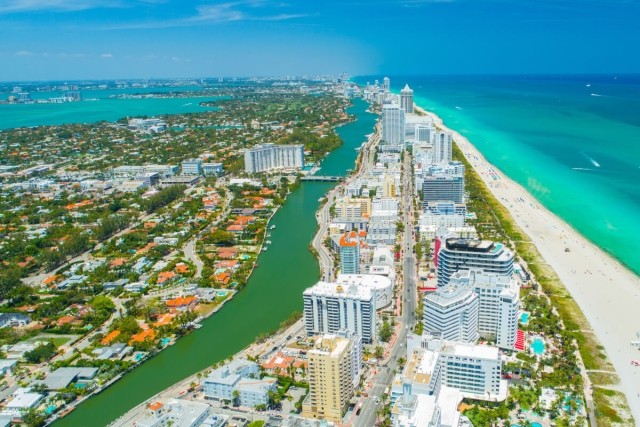It’s no secret that Florida is one of the country’s most popular retirement destinations. Warm weather, sandy beaches, and lots of active retirement communities are just some of the reasons that retirees flock to the Sunshine State. When most people picture a Florida retirement, they’re thinking of Orlando or Tampa Bay or the Miami area. But northern Florida shouldn’t be overlooked. Have you considered retiring in Jacksonville?
Pros of Retiring in Jacksonville, Florida
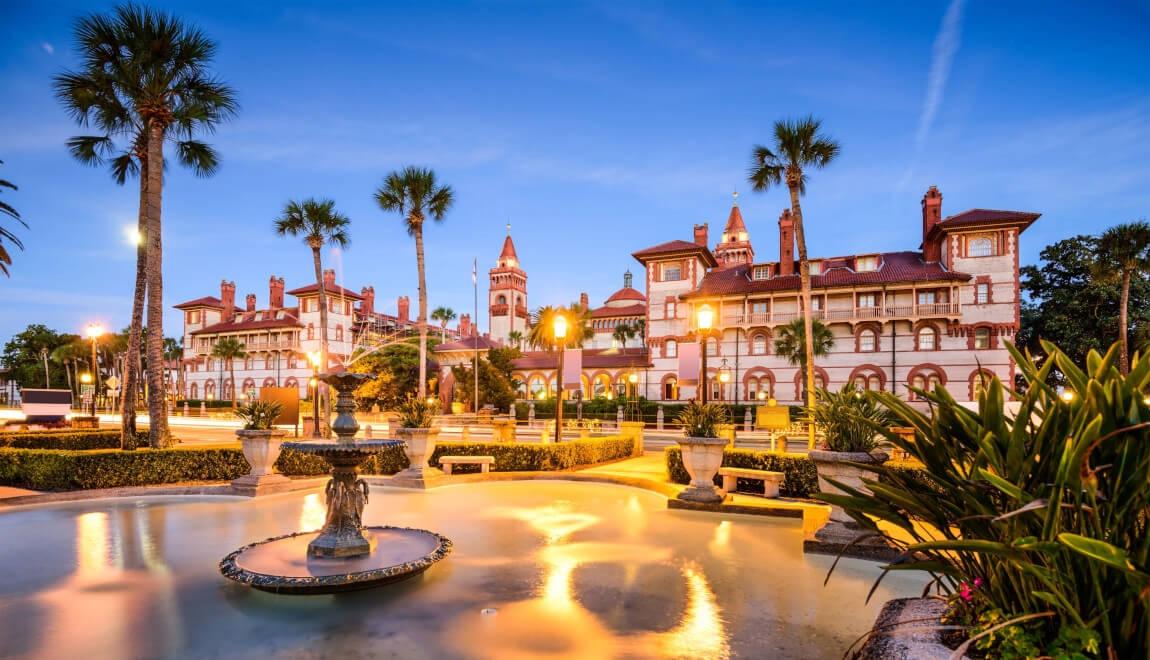
Jacksonville is on the banks of the St. Johns River, which runs 300 miles and is the longest river in Florida. The river is a favorite spot for sailing, kayaking, fishing, and more. With riverwalks spanning more than three miles on the north and south banks downtown, the St. Johns riverfront is a perfect spot for a scenic stroll. If the beach is more to your liking, head across the Intracoastal Waterway to the Atlantic Ocean, about 15 miles east of downtown Jacksonville. While many Florida beaches are jam-packed with tourists, Jacksonville beaches are less congested and just as beautiful. Some of the best places to unfurl a beach towel include Neptune Beach, Jacksonville Beach, and Ponte Vedra Beach.
Plenty of Parks
With more than 60,000 acres of parks within city limits, Jacksonville also boasts of the largest urban park system in the nation. In total, Jacksonville is home to more than 400 city parks, seven state parks, and two national parks. Friendship Park, with its famous fountain, is a must-see. Jacksonville’s parks, by the way, include miles of hiking trails for outdoor recreation even in the city.
Museums for Every Taste
Even if you’re not the outdoorsy type, you’ll find plenty to do in Jacksonville. Within the downtown core are a variety of popular museums, including the Cummer Museum of Art & Gardens, with more than 5,000 items in its permanent collection. There’s also Jacksonville’s Museum of Contemporary Art and the Museum of Science and History. The latter, which goes by the name MOSH, is worth visiting by yourself or with the grandkids.
Big-League Sports
TIAA Bank Field is home to the city’s NFL team, the Jacksonville Jaguars. The impressive stadium was also the site of the 2005 Super Bowl and hosts an annual college football showcase, the Gator Bowl. Baseball fans will enjoy 121 Financial Ball Park – home of the Jumbo Shrimp! – for minor league games. Meanwhile, VyStar Veterans Memorial Arena hosts hockey, basketball, and arena football games.
Low Cost of Living
The cost of living in Jacksonville is 6% below the national average. The average home price is 12% lower than the national average, and transportation expenses and healthcare are both 17% lower than the national average. However, you will pay more for utilities — roughly 5% more.
Warm Weather
No, if living in Jacksonville, you’re not going to be wearing a swimsuit on the beach in the winter, as you might if you lived down in Miami. But you won’t need to pack a parka, either! The average low in January in Jacksonville is 45 degrees Fahrenheit. The average high in January is a pleasant 64 degrees. Even summer heat is mitigated by the ocean in Jacksonville, with the warmest month, July, topping out at 90 degrees on average.
Senior Services Galore
Jacksonville’s Senior Services Division operates 20 senior centers around the city where cultural, educational, and social activities are organized by and for residents 60 years old and over. Activities include a foster grandparent program, volunteer matching for people 55+, and special events like the “senior prom.”
Cons of Retiring in Jacksonville, Florida
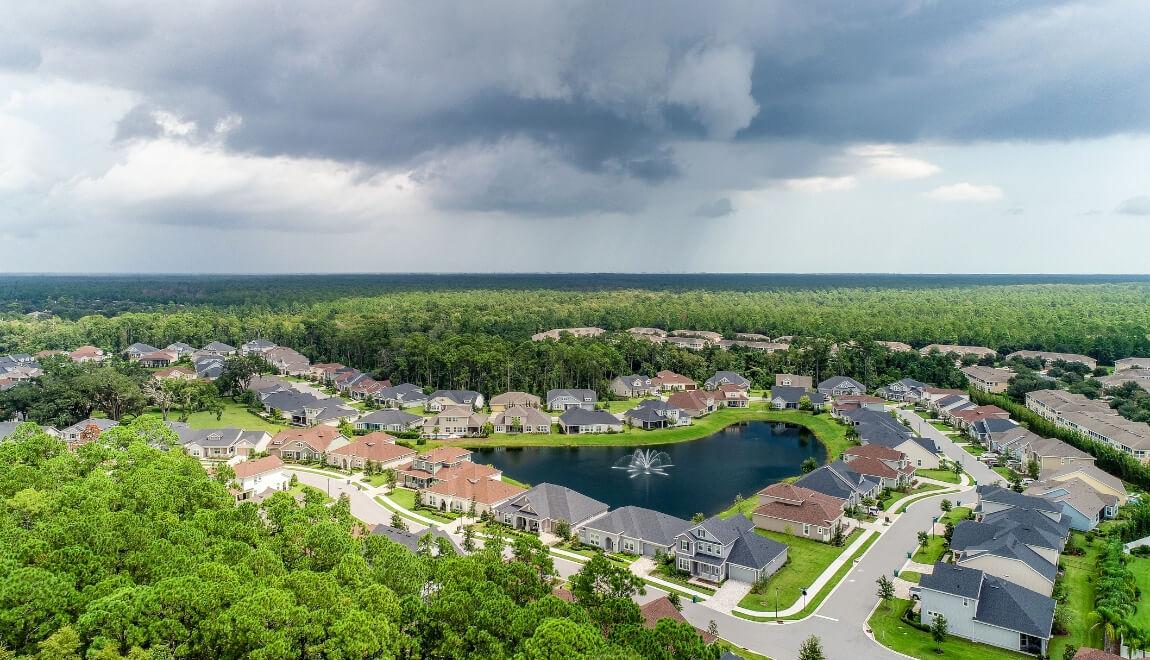
Sprawl and Traffic
Jacksonville is spread out, with lots of bridges over lots of water. So if driving here, expect traffic jams. Rush hour can be particularly frustrating, especially in the perimeter loop of Interstate 295. If you’re retired and have the option, it’s best to avoid driving at peak times. Jacksonville also can be difficult to navigate and maneuver around, particularly downtown. Until you become familiar with the area, consider public transit. Jacksonville's First Coast Flyer rapid transit service will get you where you want to go fast, and you won't have to worry about traffic tie-ups.
Threat of Hurricanes
Like much of the coastal South, Florida is prone to hurricanes. Although hurricanes don’t typically cause as much destruction in northern Florida, where Jacksonville is, it is still important to be aware of the risk and make preparations every hurricane season. Tracking hurricanes is just a Florida way of life. If you’re new to the state, check out Ready.gov or the Florida Division of Emergency Management to learn how to prepare.
Bugs and Other Pests
Like most of Florida, Jacksonville has terrific weather year-round, which is great—especially for mosquitoes and other creepy crawlies. Living in Jacksonville, you’ll see lovebugs take over the landscape (and your car bumper) every spring and fall. Wolf spiders and banana spiders are also quite common, as are palmetto bugs, fleas, and termites. If you see a large mound of dirt, it’s quite likely to contain fire ants. These aggressive ants will continuously sting people unfortunate enough to encounter them. The bites are painful, itchy, and if you’re allergic, could cause anaphylaxis. As for other pests you might encounter living in Jacksonville…we won’t even mention the alligators and lizards.
Are you ready to retire in Jacksonville?
Visit After55.com for information about retirement communities in the Jacksonville area, including apartments and homes. Also in north Florida, you might consider Saint Augustine, the Gainesville area, or the Florida Panhandle.
Published March 20, 2023

